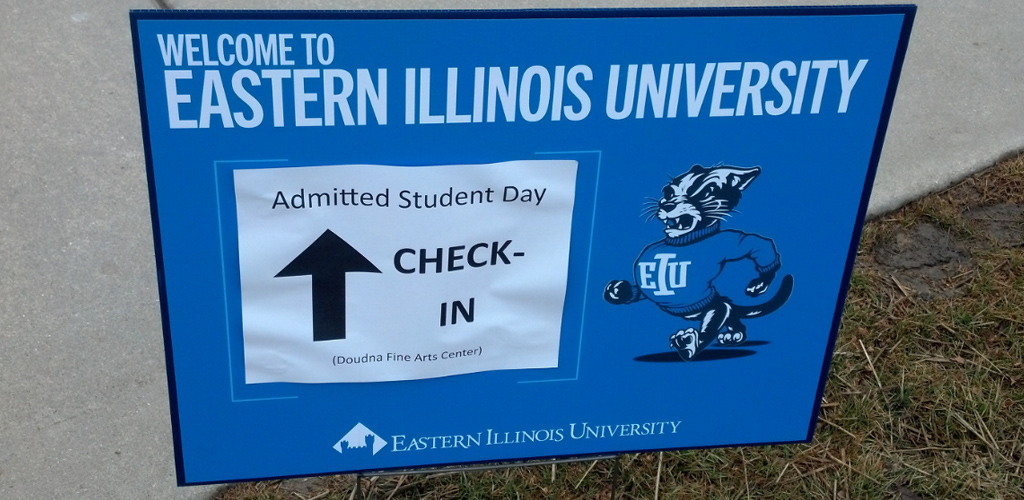
“Have you shared any tips from shopping for colleges with your oldest daughter? If not, will you be?”“Hi Jill, will you please blog how you save money on college or university? Thank you!”
“It’s college time for our son, and we’re looking at more money than we’ve spent on anything in our lives other than our home. What are you doing with your daughter’s schooling?”

I’ve been receiving a few emails and messages asking about the path we chose for our daughter’s education. and I’d be happy to share some of the details with you.
For a little perspective on what led us to where we’re at today, I’ll share the deal my parents presented to me back in my senior year of high school:
- Mom and Dad will pay for two years of community college plus two years at a state university
- Continue to live at home during the community college years
- Do not take a gap year between high school and college, do not take a gap year between any years of college, and do not earn failing grades
- Take longer than four years to graduate, and the mom-and-dad-pay deal ends.
I took the deal — so did my sister. We both graduated on time in four years, both from our local community college and from state universities — Northern Illinois University for me, Illinois State for my sis. While it may not seem as glamorous or exciting as going away to school for four years, we both felt that we got excellent educations during our first two years at community college. All of our credits transferred to our universities, and we received the same bachelor’s degrees that we would have received had we gone all four years at our respective universities.
I’ve never regretted taking this path. In many ways, I found the years I spent at community college to be better and more enriching than the years I spent at NIU. For example, both the computer labs and photography lab were vastly superior at my community college than at Northern — we had brand-new equipment in both labs, and I remember being both surprised and disappointed at the quality of the older, well-worn computers, cameras and darkroom equipment once I got to NIU. I had so many personal growth opportunities within student leadership organizations in community college, and I felt that the smaller class sizes there were also beneficial to me.
Along the way, some of my friends dropped out of school between their second and third years. Had I decided to stop my education at the same point, I would at least have had my Associate’s degree completed, making it easier to transfer those credits to a university once I was ready to start again. Several of my friends, now adults, wish they had at least completed a two-year degree before quitting school.

As my husband and I have raised our children, we’ve saved money to pay for their schooling with the intent of steering them to a similar path. During our daughter’s senior year in high school, we presented her with the same option. Choose a local community college. Knock out all of those core classes everyone needs to take to graduate with a four-year degree. Then, choose a state college or an out-of-state university that will honor in-state tuition rates. We’ll pay for all school and living expenses (yes, you can move out for your final two years!) and again, you’ll graduate debt-free with two degrees.
Smart girl — she took the deal, just as I did years ago, and her years at community college have been filled with extracurricular experiences that rival those she might have enjoyed at a larger, more expensive school. Just like her mother did years ago, she’s pursuing a journalism degree (I swear, I did not push her into it!) and the past two years have been filled with all kinds of workshops in her field — shadowing Chicago Tribune reporters on the job for the day; numerous retreats to area universities for journalism camps, training sessions, and workshops. In two years, she went on at least six different overnight, multi-day trips through the journalism department. As student reporters, they even went down state to Springfield to cover the budget crisis. We paid for none of these trips — all expenses were covered by the department at school.

Last month, our daughter graduated community college with her Associate’s degree and set her sights on choosing a university where she would finish her education. In anticipation of this, she narrowed her choices down to two of the universities she’d visited on previous trips with the journalism department. Both universities have excellent journalism programs. She really liked both schools and had a chance to get to know the department heads at both, and she really could see herself attending either one: The University of Iowa and Eastern Illinois University. She applied to both, and she also applied to two other state schools as backups in case her first two choices didn’t work out. She was accepted to all four, so she then focused on U of I and EIU.
In the end, the decision was financial. Iowa initially said they would honor in-state tuition rates for her, but the school later had some trouble making that happen with her entering as a transfer student. This left Eastern, and we’re proud that when Fall 2016 rolls around, we’ll have a Panther on the loose at EIU!

Her community college path cost around $2000. She did graduate high school with several scholarships, which helped bring the costs down too, but community college is simply a bargain compared to other alternatives. Whether you go to a four-year university or a community college, your first two years are going to contain core requirements that you would have to take anywhere (English, math, and other gen ed courses.) Does it really matter where you take these? Transfer them to a four-year university, and you’ll graduate with the same Bachelor’s degree that everyone in your graduating class does.
I think the school/life balance is easier too when you’re going to school close to home, then reuniting with family for dinner and the general stability of family life at the end of each day. Homework can be done at the kitchen table, not at a desk in a cramped dorm room with a roommate who may or may not be supportive of your study habits. Your family’s still feeding you each night and doing your laundry.
I also believe that not all kids are ready to move out of the house the moment they turn 18. They may think they are, of course, but not everyone is.
Just today, our daughter shared with us that three of her friends who started at private universities the same time she did have dropped out. They’ve decided they are not going back to school in the fall. She said “Living in the city, they’re working too and just struggling to pay rent on their apartments.” Something had to give, and I was sad to hear that it was school.

We’ve saved so much money over the past two years that sending our daughter off to EIU in the fall won’t break the bank. Tuition at EIU is a little over $11,000 each year. After considering the additional numbers for housing at EIU ($9176/year for the dorm, which includes 12 meals/week) we also believe it is going to cost less for her to live in an apartment versus the dorm.
In March, we visited EIU for an orientation day and some apartment-hunting, and we returned to campus in April to tour more apartments and see our daughter sign her first lease. Off-campus apartments are surprisingly reasonable at EIU. She chose a $350/month apartment about a block from campus. Her rent includes some utilities, and together we’ve been working on a monthly budget for food, remaining utilities and expenses that we will cover. She’s also received scholarships for EIU, and each of those will help bring her tuition down.

It’s been somewhat eye-opening for me to discuss college choices with other friends and acquaintances. One friend felt they had to eliminate considering any public Illinois universities from their daughter’s college search due to the current budget crisis, and admittedly, this is a strong concern of mine as well. I do hope that our state can continue to fund its state universities and educate the next generation of students coming through. Eastern has recently assured students and parents that it will remain open despite the budget impasse.
Another friend told me that there was no way she could consider a public university for their son. “State universities simply accept too many people. What good is a degree from there?” (I, of course, cheerfully replied that I was an NIU grad, and I think I’ve done well for myself since college!) The friend said, “Well, you know, I went to [insert well-known private university a few states away.] I want him to go there too. It’s expensive, but he’ll deal with it.”
I knew the university she named costs $39,000/year.
I agreed that it’s a great school, but something that pricey is simply out of the budget for us. The friend said it was completely out of their budget too, “so, he’ll just get loans. It’s worth it.”
I said, “For me, having her graduate debt-free has always been one of our goals. I would rather see her graduate from a state college that we can afford so she can start her life as an adult with no debt,” adding that four years at the university she named would cost $156,000.
The other mother shrugged her shoulders and said “Debt is a part of life. He’ll just have to deal with that. I still haven’t finished paying for my student loans.”

Everyone’s perspectives are different. Graduating debt-free allowed me so much freedom to start my own life, buy a home, start a business, raise a family. I’m grateful for that, and I want our daughter to have the same freedom. I don’t feel I’ve personally been hindered in any way by graduating from a public university versus a private one. I also don’t believe all jobs require a college degree, though many employers make a college degree a job requirement.
I was talking recently with another friend. She’s got family friends where the husband recently lost his longtime job, and he simply can’t find another one in his field that will interview him without a college degree. His 15+ years of working in his industry, while valuable experience, isn’t opening the doors that a college degree would. The jobs he’s applying for aren’t requiring that he have attended an Ivy League school — they simply want to see that he completed college somewhere.

I graduated NIU with a journalism degree, which, honestly, has become all but irrelevant in the current digital age. I graduated at a time when the internet was something people had at work or school — IF you were lucky. Few people had it at home, and there were mere hints of the essential form of daily communication that it would later become. Getting a job in journalism meant that you were likely going to work at a newspaper, which I did do for a few years. Then, the World Wide Web exploded, I taught myself to program and write code, and I set my degree aside for over a decade to pursue a career in web development. (My parents were delighted that I returned to writing for print in 2008 when my column became syndicated — “You’re finally using that degree!”)
While my background in journalism has undoubtedly shaped the writer and blogger I’ve become, it didn’t prepare me for the media-rich world I work in today. It couldn’t — how could it have? This job and this media space simply didn’t exist yet. The US Department of Labor has said that 65 percent of the kids in school right now will ultimately be employed in jobs that don’t yet exist. We do our best to help educate them for the workforce, but the demands of the workforce are constantly shifting too.

As part of our daughter’s orientation at EIU, we took a campus tour, enjoyed a welcome orientation assembly with the school’s president, and had lunch with our daughter’s future EIU classmates and their families. Then, something wonderful happened: The new students were broken into smaller groups based on majors and were instructed to head to their various departments. We entered a journalism classroom and met two of her soon-to-be professors. The students were instructed to sit in front, and for the next hour, the professors dug right in to a discussion of journalism ethics, new media, blogging and the responsibilities of reporting bias-free news.
Watching my daughter enthusiastically engage with her new classmates and instructors over an ethics-filled discussion of the famous Boston fire escape collapse photograph excited me. Was it irresponsible journalism to run a photograph of two people falling to their deaths? What reasons could justify running such an image? Sitting in her class listening to her professors, who clearly love the subjects they teach, reawakened my longtime love for investigative journalism and the people who pursue it.

In that moment, I knew she was in the right place to continue her education. She’s surrounded by some of the best in her field (Eastern is consistently one of the top-rated colleges for journalism) and in addition to the traditional print and broadcast journalism her mama studied, she’ll also study public relations, blogging, radio, digital video, graphic design and much more.
She’s going to Eastern, and we couldn’t be prouder.
You may also enjoy these related posts:
- College apartment-hunting with our daughter
- Back to Campus decorating and organization
- Building a kitchen countertop extension for our daughter’s college apartment
- College apartment bargains and finds: What she’s packing
- Putting two HD television antennas to the test in our daughter’s college apartment (free TV – no cable bill!)
- Off to college: One chick has left the nest










Mary says
While I think it is GREAT to graduate debt free with a college degree not all paths can do the community college route and transfer to a University. Often a degree in the arts does not require all the core classes and you need to enter their program as a freshman so you are actually adding time when you transfer, thus costing more. In hindsight I would have made saving for college more of a priority (even while struggling) but I can’t dwell in the past. I do feel there is great value in going away to school if your child is ready for it and open to the experience. The growth and maturity that my child has gained is immeasurable. They have become involved in a variety of areas, taken on leadership roles and found mentors that nurture their learning and creativity. I believe you get out of it what you put into it but not all degrees can be started at a community college to save money.
Ellen says
Thank you for writing this. I really needed to read it. So many people have made us feel that community colllege is the lesser option. It is encouraging to hear your daughter had so many enriching experiences in junior college. There is a keeping up with the Joneses feeling right now between hearing where our friends’ kids are going and wondering if community college is settling for less.
Our son is going for a degree in economics and we also think he could finish his required classes local & then go to a school we can afford for him.
Matt says
Everybody knows going to community college isn’t real college. Your lawmakers certainly don’t consider it real college. Why do that to your kids?
*** A Senate candidate in Pennsylvania has been caught falsely claiming she was the first person in her family to graduate from college. Her defense: Anybody who spent time at a community college didn’t really go to college. ***
https://dailycaller.com/2016/06/02/senate-candidate-caught-fibbing-responds-by-insulting-community-colleges
(yes, hefty dose of sarcasm here. But that belief is out there.)
Coupon Maven says
That’s insane. My degree from NIU looks exactly like everyone else’s who graduated in my class, whether they were transfer students or 4-year students.
Karen Aldworth says
I am a Certified Nursing Assistant (CNA) instructor at a high school career center in a Chicago suburb. I teach seniors from 7 area high schools and the class is dual enrollment with a local community college meaning the students receive high school and college credit for taking the class. Many of my students are planning a nursing career and some are looking for a way to work during college as they pursue a different career path. My classroom is diverse in economic status. I had several students that received generous scholarships from public and private universities and many who did not. I encouraged my students to look to the community college for their core courses and to take some in the summer as well.
Many universities do not accept students into the nursing school until junior year or second semester sophomore year. While this varies by school, the fact that much money can be saved by taking all your core courses or even a few of your core courses at the community college. Along with my new CNA instructor position 4 years ago came the desire to obtain my Masters in Education to better my ability to teach my great students. My masters application required my undergraduate transcripts. There on my transcript was a grade from a history class taken at a community college in 1975, still valid after all these years.
There are so many other things that can be done with that money saved. Take a look, most colleges/universities, no matter the degree, will accept some transfer credits.
Kristy says
When my daughter was starting college she wasn’t interested in the big universities she wanted the smaller private college with smaller class sizes. I have to say most of her classes have been smaller than her high school room sizes which has been very beneficial to her for the one on one with the professor, she has great relationships with many of them which her concern was she wasn’t going to get that at the big state schools. We also found that with the private college the scholarships they awarded her the tuition was the same or less than the state school would have been.
Now the con on going to a private school is they do add in speciality classes for your requirements beyond your standard core classes so staying there from start to finish seems to be the best path or even transferring out to a community college doesn’t seem to be a great option either. I do believe she is getting a great education at this private school one due to the class size and due to the one on one she gets with her professors.
Yes the costs are scary at first when you look at $45,000 a year including room and board which she lived on campus her freshman year then off campus her Sophmore year and now she lives at home and commutes her costs after her scholarships each year have ranged from $5,000 to $10,000 so I have been very pleased and happy to say after 5 plus years )it took a little longer due to the blessing of my grandson) she will leave college with about $20,000 of debt, I was able to cover the rest of the costs.
Lori says
Congratulations to your daughter for making a wise decision! I graduated from Eastern Illinois University in December 1988. I took advantage of my community college by taking some summer classes that transferred. I am a special education teacher in the western suburbs–and I feel that my degree from Eastern has paid off! I couldn’t agree with you more that it doesn’t really matter what university your degree comes from–in the end–as long as it is from an accredited school. My husband and I are from the same mind set–wanting our children to graduate debt free. We are going to try our best to make it happen as we believe that will be the best boost we can give them for their futures. This fall we will have two children in college–and one still at home entering high school. We may not be able to attack some of those expensive home projects, go on fancy vacations or wear the latest fashions–for a while, but we’ll get there! Good luck and best wishes to your daughter!
kiki says
It really all depends on your student’s situation. Both of my kids took every possible AP they could in high school and the colleges give credit for these. My daughter graduated from U of Iowa in 3 years with a double major. Add to that scholarships and money we had already saved and she got the experience she wanted and is debt free. She then moved to Florida to get residency and got her Masters degree for very low tuition and now has a great job and zero debt!
My son graduated from a prestigious college on the east coast that doesn’t accept AP credits but was extremely generous with scholarship money. He also graduated debt free and has fantastic alumni connections. He got job offers immediately after graduating and is now looking to go to law school.
If what you want is truly an in-state school, that’s fine. But if you dream big don’t sell yourself short! If your student has good grades please do apply to some of their reach schools. We have found that the schools on the east coast are very, very generous with their scholarship $$ making the cost the same or even less than what a state school would cost, even with room and board.
We are not wealthy but we are definitely middle class and found that Midwestern schools gave very little to us in the form of need-based scholarships. Go east – they give a lot more discounts on the tuition!
Karen says
Some good advice. Also just encourage students and parents to really try to get to know themselves and what works. For me I was mature with study habits and finances but not so socially and emotionally. I was paying for school primarily on my own but after a year at community college it was just not keeping me motivated. I felt like I had stalled stuck in a hight school world while my peers moved on. My part time job offered me a full time manager’s position I took it. While I gained great experience for it was enough to motivate me to see how hard I worked, and that my store manager only worked harder for little more money. Plus I still felt living with mom and dad had me trapped in a high school mindset, but I was not ready to be out on my own So I went to four year university and that worked better for me. Also I still think it is important for kids to stay on campus. There are many ways to skew the math that make off campus apartments seem cheaper than campus living they just are not. Campus dorms have all your utilities included cable, internet, electric water. grocery/eating out always ends up more than you planned costing more than a meal plan. Depending on size of campus and the town you may have to either rely on public transportation, taxi or have a car on campus (extra parking fees) even extra entertainment expenses. Finally one thing that was beneficial to me in may ways was that junior and senior years I signed up to be a resident advisor, it was job and yes there are some down side but my room and board were paid for two years along with a small weekly salary. Also the amount of training and life skills I learned were valuable beyond money.
mjheinzer says
Our family has gone to EIU for the past 4 years to watch our daughter compete in the girls state track meet. If your family wants to go visit for a weekend you should look into The Osage Inn. It’s a 1850’s log cabin (updated with modern conveniences, of course) just a few miles out of Charleston. It is more pricey than a hotel in town but sleeps 6-8 and is a nice property with a fire pit and walking paths. For our family of 6 it was worth the extra money to have a kitchen available and to be right in town( its hard to get a hotel room that weekend).
My daughter and I did visit EIU for an official college visit as well and I was very impressed with the school. She eventually decided on a different school that offered her a nice track scholarship though.
queenkitty says
We believe in giving our sons the educational opportunity to help them get ahead in life. We will pay for your 1st degree but any additional education you wish, you have to pay for. Both of my sons graduated from NIU debt free. It’s important that be debt free as with the current economy as their earning potential will not be the same as it was for us in the 1990’s. My oldest graduated in 2011 with double majors also got his Masters 2013 totally paid by NIU by being an RA and TA. My younger son went to community college first as he was not as good a student as his brother and completed his gen eds. However since his degree is Graphic Design, there is so much homework in art (drawing, etc) that he could only take 12 hrs per semester so he ended up going for another 4 years.
Many of my older son’s friends are getting married now and some of them are not having children because they have so much student loans that they can’t see how they could possibly afford them.
rB says
Go Huskies! My daughter will be attending NIU this fall, majoring in biology, after having received a 2 year degree from our local community college. I think one of the best gifts we can give our kids is the example to live within their means. They should be proud of their degrees from affordable instituitions. It is amazing and troubling how many kids are going away to college, beginning a second debt cycle in their families. Our daughter’s time at community college gave her breathing space to find herself, get used to the pace of college life, and even switch majors, and it was all affordable!
Lisa says
NIce to hear another perspective. But like others have said, not all degree programs work with the community college plan. After visiting many schools for my son who plans to be a mechanical engineering major, I found out some things that shocked me.
First, private school was much less expensive than any public school in Illinois. Thanks to endowments, work study and ‘full need’ programs he can graduate from MIT (for example) with a debt for four years that equals less than one year debt at IIT, Western, or the like. Harvard is even less.
Plus, most deicated engineering programs don’t require as many core requirements, so you can take 2 years at a community college, but that puts you behind when you transfer. Also, with lab research opportunites and internships, you miss a lot by not being there for the first two years. Study abroad was included in the tuition for most of the private colleges (except air fare) too. Even summer programs.
Lots of opportunity for a reasonable cost…especially if you are lucky enough to have a kid who tests well and can bring high scores to the table. So don’t be afraid to think big! Bargains can be where you least expect them.
Christine says
I totally agree with your philosophy of 2 years at community college and 2 years at a university. I do have to comment that my 2 girls attended community college for FREE by getting a scholarship for an academic activity there. They gained invaluable experience as they traveled with their team, learned how to budget their time and money while they lived at home and yes, they had many friends who dropped out of college and came home all in the time my daughters were completing gen. ed’s and obtaining a degree. One received her CNA which solidified her choice of becoming a nurse. It allowed her to make more money( while she has been home) than the average person due to the CNA certificate. We went the private school route for the 2 year university and guess what? Both girls received so much scholarship money they were able to go to the college of their choice and will be debt free when the are done in 4 years with their degrees. People who look down on community college are ignorant of the many benefits that students receive. Both of my girls have made lasting friendships with excellent teachers and mentors at the community college. AND for those who are freaked out by community college- my girls were home schooled all the way through HS, and received LOADS of money for academics at the university!
Joy says
Both my kids got leadership scholarships and then one went to West Point so his education was FREE and its Ivy League quality. Yes he will serve 5 years but after 3 years he has multiple Fortune 500 companies pursuing him and he has 2 years to serve still. He also got a monthly stipend every month and left college with a degree and Roth Iras from time be was 19.
My daughter went ROTC route. 3 years complete tuition and room and board paid plus stipend at private college. She graduated in 4 years with degree in Education and 2 minors. And fiiter than any of her peers. Her first year cost 6000$ because she got many scholarships for serving in community and being a great student.
Both my kids are fit and the leadership exoerience is unbelievable. Dont discount ROTC